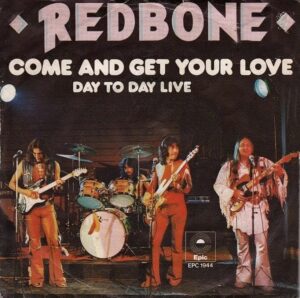Inside the Mythic Rise of David Corenswet and Nicholas Hoult as Clark Kent and Lex Luthor for James Gunn’s “Superman”
Superman, that most mythic of American icons, is more than a cape and an S on the chest. He’s the embodiment of hope, strength, and moral clarity—a symbol Hollywood dares not mishandle. Lex Luthor, his nemesis, is the shadow that defines his light. So when James Gunn, the newly crowned co-head of DC Studios, took the helm of Superman (set for release in 2025), he faced a daunting question: Who would carry the legacy of the world’s most famous superhero—and who would threaten it?
Enter David Corenswet, a rising actor whose clean-cut charm and brooding sincerity seemed destined for the red cape. Alongside him, Nicholas Hoult, a seasoned performer with the intellectual intensity to play Lex Luthor not as a mustache-twirling villain, but as a frighteningly human adversary.
Their casting wasn’t just announcement—it was an event. Gunn’s Superman would not be a reboot for the sake of novelty but a rebirth: mythic, earnest, and deeply human. And Corenswet and Hoult aren’t just co-stars—they are opposing forces in a story designed to redefine the genre.
This summer, Wonderland captures the two actors on the verge of cinematic myth-making, tracing the gravitational forces that pulled them into the orbit of Gunn’s vision, and the cultural weight of bringing two of the most iconic roles in Western pop canon back to life.
David Corenswet—The Man of Tomorrow
Until recently, David Corenswet was known as the handsome supporting actor in series like The Politician and Hollywood—his square jaw and All-American looks inviting comparisons to vintage stars like Gregory Peck or Christopher Reeve. Now, cast as the most recognizable superhero on Earth, he steps into a role that’s as much cultural inheritance as it is character.
In person, Corenswet exudes a calm warmth. Tall, introspective, and articulate, he seems deeply aware of the responsibility tied to the role. “Superman is an ideal,” he explains. “He’s not just strong—he’s compassionate. He chooses restraint. He could rule the world, but he serves it.”
It’s this core tension—power with humility—that Gunn’s Superman is built around. Unlike the brooding realism of Snyder’s universe, Gunn returns to the earnestness that defined the golden and silver ages of the comics. And Corenswet? He’s the embodiment of that shift: gentle, sincere, unshakably grounded.
“I didn’t want to play a god,” Corenswet continues. “I wanted to play a man trying to be one.” That vulnerability—Clark Kent’s daily dissonance as both Kansas farm boy and Kryptonian savior—anchors his portrayal. On set, he reportedly studies not only the physicality of the character but also his philosophical implications. His reading list includes not only comic classics like All-Star Superman but also Joseph Campbell’s The Hero with a Thousand Faces and Hannah Arendt’s The Human Condition.
To Gunn, Corenswet wasn’t just a casting choice—he was a narrative keystone. “David has that timelessness,” Gunn said in a behind-the-scenes featurette. “You believe he cares. That’s the whole point of Superman. If you don’t believe he cares, nothing else works.”
Nicholas Hoult—The Mind of a Madman
On the other end of the moral spectrum lies Lex Luthor, perhaps the greatest antagonist in the superhero canon. Genius, industrialist, manipulator—Lex is a man obsessed with order, a narcissist convinced that Superman is an existential threat to human autonomy.
Enter Nicholas Hoult. While Corenswet leans into warmth, Hoult brings an electric chill. His career has long navigated the terrain between empathy and ego—from About a Boy to Mad Max: Fury Road to The Great. In every performance, he is a student of contradictions.
“I don’t think Lex believes he’s evil,” Hoult says during our shoot, dressed in an Alexander McQueen suit, bathed in a palette of sterile whites and brutalist greys. “He sees himself as the last rational voice in an irrational world.”
This version of Luthor is less camp and more Kafka—a ruthless modernist whose disdain for Superman stems not from jealousy, but principle. “To Lex, Superman violates the social contract,” Hoult explains. “He undermines meritocracy. He distorts evolution. He introduces chaos under the guise of salvation.”
Gunn’s script reportedly leans into this logic-heavy version of Lex, framing him as a cultural critic who sees Superman as a mythic delusion, a force that infantilizes humanity by offering it a savior rather than autonomy.
“I read a lot of Žižek,” Hoult admits, laughing. “And quite a bit of tech philosophy. Lex is part Tony Stark, part Peter Thiel, part Faust. He’s terrifying because he’s right about a lot of things—until he isn’t.”
The physical transformation was also extreme. Hoult shaved his head and shed weight for a gaunt, intellectual frame. He spent time working with body language coaches to minimize unnecessary movement—emulating predatory stillness, a mind always calculating.
James Gunn’s Vision—Myth for a New Age
The creative force behind this cinematic resurrection is James Gunn, co-CEO of DC Studios, known for reinvigorating lesser-known heroes (Guardians of the Galaxy, Peacemaker) with style, humor, and emotional depth. With Superman, Gunn faces his most delicate challenge yet—reintroducing the symbol of American hope in a fractured era.
“The thing about Superman is, he’s not cool in the modern sense,” Gunn stated in a press conference. “He’s not edgy. He’s not ironic. That’s exactly why we need him.”
The film, simply titled Superman, is set to function as the cornerstone of DC’s new cinematic universe, called “Gods and Monsters.” Rather than origin stories, Gunn’s world assumes that these heroes already exist—flawed, mysterious, and deeply embedded in the fabric of their universe.
Shot across locations from Kansas cornfields to futuristic Metropolis skylines (with production design heavily influenced by Metabolist architecture and 1960s science fiction), the film is both grounded and cosmic. Gunn describes it as a “character drama disguised as a superhero movie.”
It’s no accident that the first public images released featured Clark Kent not flying but walking through a city street, glasses on, briefcase in hand. “Superman’s strength isn’t that he can punch through walls,” Gunn insists. “It’s that he chooses not to.”
The Cultural Stakes of Superman in 2025
In a time defined by cultural polarization, ecological collapse, and algorithmic angst, the stakes of a Superman movie are uniquely high. The character’s mythos demands sincerity—a word often regarded with suspicion in the age of ironic detachment.
For Corenswet and Hoult, embodying these opposing poles is a political act as much as an artistic one. Clark Kent’s optimism isn’t just a throwback—it’s a defiance. Luthor’s cynicism isn’t just villainy—it’s a worldview gaining traction in Silicon Valley boardrooms and online manifestos.
Gunn’s Superman aims to rekindle belief—not just in the character, but in narrative itself. That stories can still guide us, that good and evil are not naive binaries but living forces we negotiate every day.
“The idea that you can save people simply by choosing to be kind,” Corenswet says, “feels radical again.”
The Summer of Supermen
As the campaign for Superman ramps up, both Corenswet and Hoult are becoming central figures in a cinematic universe hoping to restore luster to a struggling franchise. But beyond studio economics or box office bets, there’s something poetic in their pairing.
Corenswet, often photographed in sun-drenched Americana, evokes a classicism bordering on sacred. Hoult, cloaked in minimalism and whispers, moves like a blade in the dark. Together, they form a narrative dyad—a god and his skeptic, a dreamer and his destroyer.
For Wonderland’s Summer ‘25 issue, the cover shoot is symbolic. One image shows Corenswet in a crisp white shirt, glasses slightly askew, caught mid-laugh in a golden-hour street scene. Another frames Hoult in shadow, reflected against the mirrored side of a brutalist tower. Duality, myth, consequence—it’s all there, captured in fabric and posture.
A New Hope, A Familiar Enemy
When Superman hits theaters later this year, it won’t just be another superhero movie—it will be a referendum on belief. In stories. In ideals. In people. And at the heart of it all are two actors who’ve never met on screen until now—each stepping into roles once played by giants, now reinvented for a new age.
In their portrayal of Clark Kent and Lex Luthor, David Corenswet and Nicholas Hoult remind us that even in a world of collapsing truths, there’s power in myth—especially when it’s told with honesty.
No comments yet.








